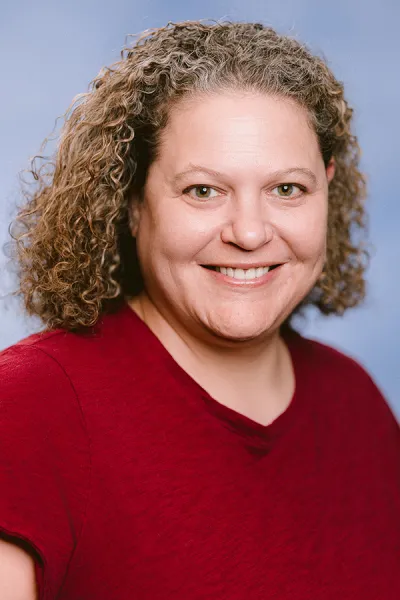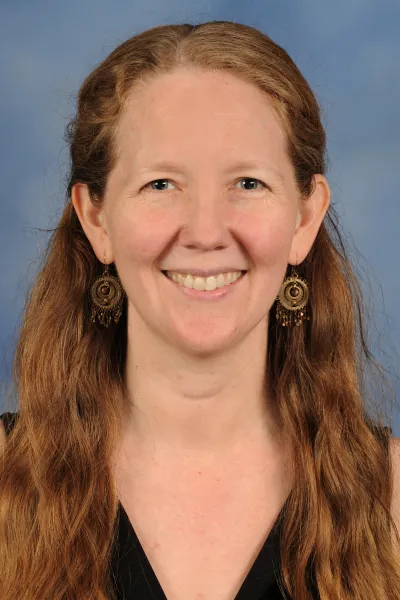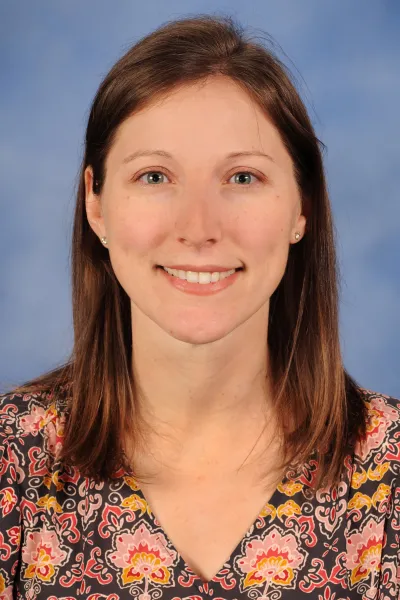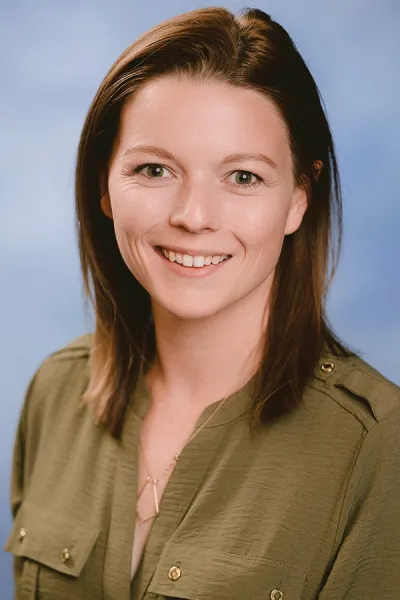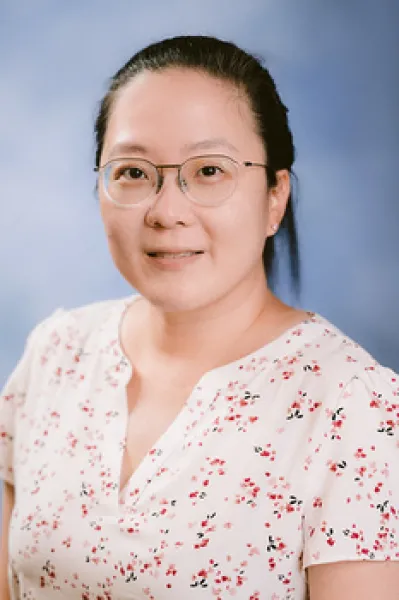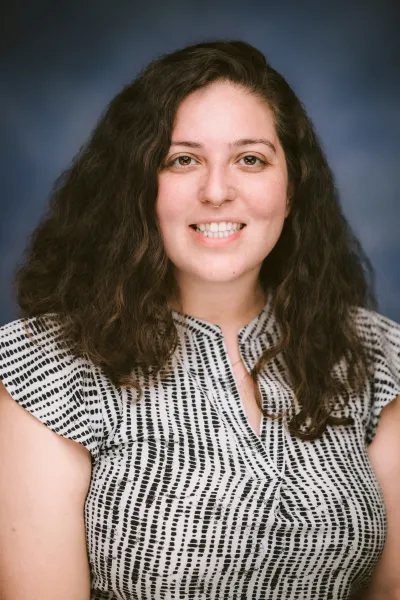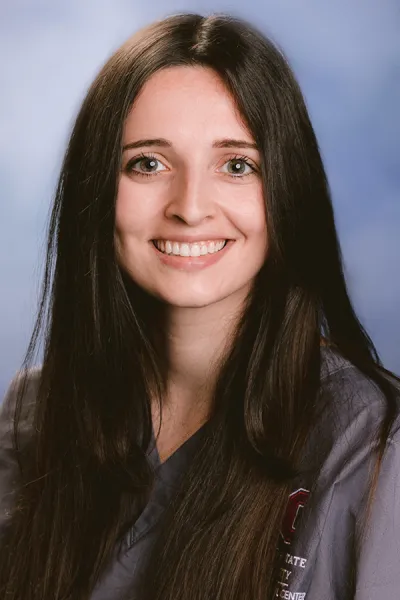Small Animal Internal Medicine Residency
Additional Residency Resources learn more about our veterinary health system
Objectives
- Develop comprehensive, state-of-the-art expertise and clinical proficiency in small animal internal medicine
- Satisfy the criteria necessary to qualify for Board Certification, and to prepare the resident for successful completion of the Small Animal Internal Medicine Specialty Certification Examination
- Prepare for future career goals of teaching, clinical research, scientific publication, or specialty practice
Our Team
Prerequisites and Applications
- Applicants must be graduates of an AVMA-Accredited or faculty-approved College or School of Veterinary Medicine with academic standing in the top 50% of the class
- Applicants must have completed a one-year rotating internship or acceptable equivalent clinical experience
- Residents who are foreign nationals (non-US citizens) must be permanent residents and have work authorization as outlined in the Department of Veterinary Clinical Sciences Residency Program Handbook. In addition, foreign nationals must also meet the requirements of the university Graduate school for the Test of English as a Foreign Languages (TOEFL) or Michigan Test of English Proficiency (MTELP) – see Graduate Program Handbook.
Employment and Benefits
See the Residency Program Handbook for a full list of benefits
- Salary
- Health insurance
- Travel Allowance
- Personal + Professional days leave (from policy)
- External consultation and employment
- Licensure
- Tuition assistance
Orientation
- During the first week at the commencement of the residency program, all incoming residents participate in a comprehensive orientation program (see Residency Program handbook) to introduce them to the department, college and university, complete necessary documentation, and to facilitate integration into our program and activities.
- The small animal internal medicine service will provide new residents with the following information as part of orientation:
- Roster of all Small Animal faculty and residents
- SAIM Resident orientation document
- Resident Performance Evaluation
- Intern Orientation Handout
- SAIM Senior Student Rotation Syllabus (VM 7700.03)
- Clinic Schedule
- Friday Journal Club Schedule
Advisors and Mentoring
- Clinical advisor: Each resident is assigned a clinical advisor at the beginning of the program.
- Academic advisor: Each resident is assigned a temporary academic (research) advisor at the beginning of the program. This advisor may change once the resident has identified a research area of interest.
- Thesis committee: Once the specific area of research is selected, an Advisory committee will be formed to provide advice in the development of a specific research project, during the project and to completion of the study. Typically, the Advisory committee serves as the Examination committee for the thesis defense. These committees must consist of at least 3 graduate faculty members.(only applicable if completing a thesis Masters degree)
- Mentoring: Case management is carried out with the guidance and collaboration of experienced faculty who are recognized experts in their respective fields.
Clinical Service Responsibilities
- The resident spends approximately 100 weeks in scheduled clinics within the Veterinary Teaching Hospital on the SAIM service over a 3-year period.
- Clinical experience includes direct care of small animal internal medicine disorders including urinary, gastrointestinal, endocrine, respiratory, infectious, hematologic, immune-mediated and multi-systemic disorders.
- Additional clinical experience is obtained through rotations on the oncology, cardiology, clinical pathology, neurology services, and radiology (including ultrasonography). Other specialty services available for clinical interaction and consultation include emergency/critical care, dermatology, ophthalmology, diagnostic imaging, theriogenology, anesthesiology, surgery, and pathology. Approximately 19 weeks is allocated for these rotations.
- Answer questions and calls from interns on the emergency service about internal medicine cases.
- Clinical rotations facilitate development of clinical proficiency, clinical skills, and knowledge of medicine through exposure to a wide variety of cases at all levels of complexity. This goal is facilitated by location of the teaching hospital in a large metropolitan area that provides a rich variety of case material as well as a referral base that includes Ohio, Indiana, Pennsylvania, Kentucky, West Virginia, and Michigan.
- State-of-the-art equipment and facilities are available to develop technical expertise in advanced diagnostic and therapeutic procedures.
- Residents will spend part of their SAIM rotations on the in-patient team and part on the out-patient team.
- Residents and other house officers on the in-patient team are responsible for all emergency transfers that occur from evening emergency clinics, during regularly scheduled daytime clinics, and from the Daytime Emergency Service.
- All cases on the service and transfers from the emergency department must be examined by the residents before 8:00 AM. Residents are expected to be on the clinic floor (visible and engaged) at all times during clinic receiving. Please be prepared to present any emergency transfers or give an update on your hospitalized patients.
- Case rounds will occur each morning (time varies by day). Rounds include students, interns, residents, and the faculty on the service. The in-patient team and the out-patient team have separate rounds.
- Informal afternoon rounds happen at variable times These rounds should be abbreviated discussion of critical findings or changes from the day, with one or two key but brief discussion points (per rounds session, not per patient)
- Faculty are responsible for reading the student SOAP’s. Students are required to write a daily SOAP for each hospitalized patient and are expected to write one SOAP per day when on the out-patient team (typically for a new consult, not a recheck evaluation).. Residents may want to review SOAPs to gain better insight into student comprehension of case details.
- Residents must complete their medical records in a timely fashion.
- Residents must complete their endoscopic reports on the same day the procedures are performed. Periodic reviews of incomplete records will be performed, and if incomplete records are not completed, further procedures will be prohibited.
- Residents must communicate with referring veterinarians in a timely fashion. Referring veterinarians should receive at least one telephone call when the animal is hospitalized and another call when the animal is released. Copies of hospital release instructions are distributed to medical records, the referring veterinarian and the owner. It is the clinician’s responsibility to be sure a copy of the Release Instructions are sent to the referring vet.
- Time off clinics - To facilitate research opportunities, residents are given personal enrichment blocks during which they are free from scheduled service duties and clinical case responsibilities. Enrichment time is provided to allow pursuit of course work, independent study, research, thesis writing, publication, or other elective endeavors. The off-clinic time available for each resident enrolled in the combined 3-year residency-graduate (MSc) program is 24 weeks. All personal time (vacation) and professional leave is taken during off-clinics time. Off-clinic residents are expected to come to work every day and primarily perform their off-clinic activities on the Veterinary campus. They must still check their phone messages and email at least once daily and handle all follow-up communications with previous clients until the patient returns to see another clinician.
- All leave of absences (Personal and Professional Leave) require approval of your supervising faculty member and the Service Head using the required University form (available from the Vet Clin Sci Departmental office).
Teaching Responsibilities
- Teaching responsibilities include clinical teaching of senior veterinary students assigned to the resident’s clinical service.
- During receiving clinics (appointments), the resident should strive for a balance between efficiency and the learning needs of the students. Students should be encouraged to develop their Temporary Problem List (complete with problems, differential diagnoses, and treatment) while waiting for the clinician to discuss the case. If time is short, the clinician and student can develop the TPL together. A detailed discussion of pathophysiology involved in the case should be deferred until after receiving is finished. The wait time for clients should be minimized when possible (or realistic estimates of time required for initial evaluation, and options such as leaving the patient for the day or hospitalization should be discussed). Release instructions for outpatient visits should be concise and target client information and recommendations.
- Residents also participate in teaching small animal technical skills to pre-clinical veterinary students during laboratories. All residents are required to teach in the Small Animal Medicine Techniques laboratories to third year veterinary students as assigned. Attendance at these laboratories is mandatory.
- Interested residents will be given the opportunity to develop lecture skills by preparing and delivering selected formal classroom lectures to professional students.
Educational Opportunities
- Numerous specialty seminars, conferences, and journal clubs are available to residents.
- Residents enrolled in the graduate program are required to attend a course on Research methodology, along with two other courses related to research (i.e., statistics, epidemiology), and to attend graduate seminar (every Spring semester). SAIM residents are required to participate in review sessions for Internal Medicine: Respiratory, Gastroenterology, Hepatology, Urinary, Endocrinology, Infectious Diseases, Dialysis, and Endoscopy. Residents may be required to audit an Ultrasonography course. Additionally, SAIM residents are required to attend weekly Medicine Seminar (fall and spring semesters), which entails one presentation per resident per semester.
- SAIM Journal Club occurs on Friday mornings year-round. All residents are expected to attend and participate.
- Second and 3rd year SAIM Residents typically attend the annual ACVIM Forum. The first year resident will be on clinics during ACVIM Forum week to attend to cases in the hospital.
Research and Scholarly Activity
- Each resident must submit at least one scholarly paper to a refereed journal prior to completion of the residency program.
- Residents in the graduate program are expected to prepare and submit their thesis research for publication. Residents receive extensive collaboration and mentoring from the faculty in these activities.
- Original research or clinical investigation leading to scholarly publication is encouraged.
- Opportunities also are available to collaborate on extramurally-funded research projects with faculty in the Department of Veterinary Clinical Sciences, Department of Veterinary Biosciences, or in other departments on campus
- Structured resident seminars and teaching
Evaluations
- Department (see Residency Program Handbook)
- Residents receive verbal feedback from faculty clinicians on clinical duty during each clinical rotation. The advisor and SAIM faculty perform a formal evaluation every 6 months, with additional input from clinicians in other specialties with whom the resident has interacted.
- A formal resident evaluation form (as adopted by the Graduate Studies Committee) is completed, presented to the resident for discussion. Once finalized the evaluation is distributed to the resident and Service Head as a matter of record.
Specialty College Requirements
- Each resident must register with the American College of Veterinary Internal Medicine within 90 days of beginning the residency.
- Information about registration and the General Information Guidelines of ACVIM can be found on their website.
- Become familiar with candidate requirements for ACVIM and with the General Information Guidelines of ACVIM
Board Certification
- We offer a comprehensive didactic and clinical training program that we believe provides excellent preparation for successful completion of the ACVIM board certifying examinations.
- It is important that our residents realize that although eventual board certification is clearly anticipated, our primary goal of our training program is to encourage and assist our residents in becoming highly skilled and expert internal medicine clinicians
Expectations
What we expect of residents
- Residents must provide service to the patients and owners of the Veterinary Medical Center and be active participants in the teaching and research missions of the Department of Veterinary Clinical Sciences.
- Residents serve as primary managers of the internal medicine service. They work long hours and manage the majority of cases admitted to the service via clinics, transfer from other services, and emergency pick-ups. Senior faculty may admit cases to facilitate case flow during clinics and are available for consultation on all cases on the service.
- Residents serve as the first level of supervision of senior veterinary students and interns.
- Cases admitted by senior faculty may be managed by the resident, depending on the needs of the resident and faculty.
- Residents are not required to serve primary emergency duty but must be available to provide back-up consultation and assistance for interns on emergency service.
- Residents will manage most IMED cases in ICU. Even when not directly managing ICU cases admitted by senior faculty, the resident should follow these cases and check treatment orders.
- Residents must be readily available during clinics so that students can find them easily. A major part of the clinical teaching commitment involves residents teaching students both in clinics and during rounds.
- Out-patient appointments are scheduled before 1 pm. Out-patient procedures (and procedures performed by the out-patient team) should be scheduled for afternoons. Avoid scheduling patient discharges during walk-through rounds or Tuesday class time (5-6 pm).
- Patient management decisions ultimately are the responsibility of the attending clinician. Advice from faculty and other residents during rounds is encouraged and should be given due consideration by the attending clinician.
- The Small Animal Internal Medicine service functions as a team. Students, technicians, interns, residents and faculty should work together to provide optimal patient care, client communication, and student learning.
- Consultations with other specialty services should be sought as needed. The recommendations of the consulting experts usually are followed unless there is some extenuating circumstance. Residents should obtain the approval of their supervising faculty clinician before choosing not to follow a consultant’s recommendation. It is best to notify the consultant verbally when anticipating the need for a consultation. Be sure to completely fill out the general consultation request form.
- Consultation from Internal Medicine may be requested by other services in the hospital. It is helpful to request that all pertinent data be placed in the chart to allow a thorough consultation. We encourage the resident to start the consultation and to make a preliminary assessment and recommendations. These should be reviewed with the attending Faculty. Be sure to notify a SAIM Technician so that in-house consultation fees are entered in the computer.
- Residents should develop a comprehensive knowledge of the veterinary internal medicine literature in order to provide a sound scientific basis for their medical decisions. Regular use of books, journal articles, and on-line databases (e.g. PubMed) will facilitate this process. Medical information management is an essential skill for any clinical specialist. Personal clinical experience is important, but should not be used in a vacuum.
- State-of-the-art equipment and facilities are available to develop technical expertise in advanced diagnostic and therapeutic procedures. Residents will have the opportunity to perform gastrointestinal endoscopy, cystoscopy, rhinoscopy, and bronchoscopy and may assist faculty in performing lithotripsy. First year residents must have back-up by a faculty member (or 2nd or 3rd year resident) to perform any endoscopic procedure. Second or 3rd year residents may be approached by other non-SAIM services to perform endoscopic procedures on their cases. This should be coordinated with the resident’s ongoing service duties.
- The SAIM resident on the service will be the primary clinician to perform endoscopic procedures on an Intern’s case. However, residents should involve the Intern as much as possible (such as letting them introduce the scope or taking a few biopsies) to give them an appreciation of the technique. Letting an intern perform the entire procedure may compromise what is best for the patient by lengthening anesthetic time, and negatively impacting special procedures room efficiency. Residents who are off service will not be involved in a primary role in procedures (their priority is to make good use of their off clinic time).
- Residents must treat all team members (e.g., interns, veterinary students, technicians, reception staff, laboratory staff, etc.) with respect and collegiality. Students pay tuition and hospital staff are permanent employees who constitute some of our program’s most valuable resources. If conflicts arise, they should be resolved with the guidance of attending faculty, faculty advisor, service head, hospital director (for hospital staff), or department chair (for veterinary students or faculty) as dictated by the situation.
- Residents are responsible for complying with all university, college, and departmental policies, including official university policies on discrimination, sexual harassment, romantic relationships, academic misconduct, and financial misconduct.
- Although residents are expected to take considerable initiative and assume a tremendous amount of responsibility for patient management, they must also recognize their limitations based on level of clinical experience and professional development. A residency is a training program and residents should actively seek advice and assistance from senior faculty when it is in the best interests of the patient and client. Consultation with faculty can serve as a valuable learning experience.
Skills to be acquired by Small Animal Internal Medicine Residents
- Ability to evaluate and treat patients with urinary tract disease including chronic kidney disease, acute kidney injury, urinary tract infections, idiopathic/interstitial cystitis of cats, urinary incontinence, urolithiasis, obstructive nephropathy, protein-losing nephropathy, urinary tract neoplasia, and systemic arterial hypertension.
- Ability to evaluate and treat patients with fluid, electrolyte, and acid-base disturbances.
- Ability to evaluate and treat patients with gastrointestinal disorders including inflammatory bowel disease, protein-losing enteropathy, infectious enteritis, colitis, megacolon, megaesophagus, cirrhosis, chronic hepatitis, hepatic toxicity, hepatic lipidosis, cholangiohepatitis, hepatic encephalopathy, congenital portosystemic shunt, pancreatitis, and pancreatic insufficiency.
- Ability to evaluate and treat patients with endocrine disorders including diabetes mellitus, diabetes insipidus, insulinoma, hyperadrenocorticism, hypoadrenocorticism, hypothyroidism, hyperthyroidism, hyperparathyroidism, and hypoparathyroidism.
- Ability to evaluate and treat patients with chronic nasal disease, upper airway disease, lower airway disease, acute and chronic pulmonary disease, and pleural cavity disease.
- Ability to evaluate and treat patients with infectious diseases including FeLV, FIV, FIP, respiratory viral infections, common bacterial infections, systemic mycoses, toxoplasmosis, rickettsial diseases, and other infectious diseases.
- Ability to perform routine upper and lower gastrointestinal endoscopy (gastroduodenoscopy, colonoscopy) including patient preparation and routine care of endoscopy equipment.
- Ability to place a PEG tube and an esophagostomy tube.
- Ability to retrieve esophageal and gastric foreign bodies by endoscopy.
- Ability to perform routine urinary endoscopy (urethroscopy, cystoscopy)
- Ability to assess images of abdominal ultrasonography (e.g., liver, pancreas, adrenal glands, intestines, mesenteric lymph nodes, kidneys, bladder, proximal urethra, prostate gland)
- Ability to determine appropriate indications and expected outcomes of patients that may benefit from extracorporeal therapies (e.g., dialysis, therapeutic plasma exchange, carbon hemoperfusion)
What residents should expect of their mentors
- Availability for evaluation and advice on SAIM cases and on cases submitted for consultation from other services.
- On-floor availability for advice during clinic receiving.
- On-floor availability to see and admit some cases for teaching of veterinary students and training of residents.
- Availability for guidance and assistance during special procedures as needed.
- Active participation during sit-down rounds.
- Availability to complete consults with resident or to critique consults performed by resident.
- Availability to review referral letters as necessary (especially during year one of the residency program).
- Provision of timely feedback to the resident about their clinical performance.
- Timely completion of the standardized resident evaluation forms.
- Participation in formal resident evaluations made at 6 months and yearly thereafter.
- The clinical advisor provides guidance and suggestions to the resident as needed.
- The research advisor provides guidance in development of research proposal, obtaining funding, carrying out research, analyzing results, writing manuscripts for publication, critiquing the MSc thesis, and scheduling and completing the thesis defense. The research advisor also insures compliance with graduate school procedures and deadlines, and monitors completion of coursework and other graduation requirements.
Appendices
Appendix 1 – Outline of expectations by year of residency
- The third year resident(s) will be responsible for organizing the weekly Journal Club (or Pathophysiology Review session), with Dr. Rudinsky. This includes developing and distributing a schedule for resident assignments. All residents, regardless of year, will share equally in the assignments.
- All residents, regardless of year of the program, will share equally in weekend duty and emergency back-up for the interns. This schedule will be posted on the Google calendar. The resident who is on weekend duty will supervise all SAIM cases with the help of the intern. This resident will be on Emergency back-up during the week preceding the weekend duty and pick-up emergency transfers during the day on Friday. Note that the third year resident will not generally be assigned to weekend duty or back up over a holiday (Thanksgiving, Christmas, New Year’s). If a first or second year resident is “off-clinics” during a holiday, they will still be expected to participate in the ward duty or emergency back-up schedule.
- All residents on a service, regardless of year of the program, will share equally in pick-up of case transfers from emergency (evening and daytime). Distribution of cases will occur with the goal of achieving an even distribution of hospitalized cases among residents on a service. Residents should assign which emergency transfers will be handled by the intern. Residents should take the more demanding cases.
Appendix 2 – Policy and Guidelines for Veterinarian Consultation Calls to OSU Internal Medicine
- Consultation calls from veterinarians are a fundamental part of our internal medicine residency program. These calls have the potential to generate referrals to our hospital and also allow us to provide continuing education to veterinarians.
- Consultation calls from veterinarians are the responsibility of all on service internal medicine faculty and residents.
- Consultation calls are directed to the faculty on consult duty. Attempts are made to avoid transferring consult calls during clinic receiving and rounds, but may be asked to take a consult call at any time if necessary. A voice mail message will be taken if the clinician is unable to take the call. If the veterinarian requests a resident by name, the resident in question will be contacted. Veterinarians will be asked to leave contact telephone numbers for after-hours return calls. Residents should include this request when recording their primary greeting on their hospital phone.
- Calls from veterinarians are answered by the referral secretary (Stephanie Yochem) from 8 AM to 5 PM. In order to allow residents to attend morning classes, messages will be sent straight to voice mail between 8 and 9 AM.
- Stephanie will determine whether the veterinarian is calling about a potential referral or a general information call. Calls deemed likely to result in case referral will receive higher priority than general information calls, and should be answered immediately if possible. If a resident cannot take a phone call at the time it comes in, a voice mail message will be taken. If the call is about a potential referral, it is the intent that residents will return the call in a timely manner, preferably within a few hours, or at most, by the end of the day. Referral calls that come in after 4 PM will be returned the following morning.
- If the nature of the call is for general information, Stephanie will call the resident and advise them of this. The resident may choose to take the call at that time. If not, the veterinarian will be asked to leave a voice mail message. General information calls will be returned within 48 hours. Stephanie will advise the veterinarian about this time frame.
- Calls in the opinion of the referring veterinarian requiring immediate response will be transferred to the emergency service for triage, if an internal medicine faculty member or resident is not available.
- If the resident cannot reach the veterinarian on first attempt, a message will be left with the veterinarian’s office indicating a preferred time for the veterinarian to reach the resident. Establishing contact with the veterinarian remains the responsibility of the resident who initially received the call. This responsibility is not to be transferred to another resident unless specifically agreed upon by the residents in question.
- The Faculty member on the Service will be consulted on cases in which the resident has questions.
- The Faculty member on the Service will contact the veterinarian within 24 hours if problems in communication arise between the veterinarian and resident.
For more general information, please contact the VCS Education Program Coordinator:
Chelsea Souder
Souder.60@osu.edu
(614) 688-0332
Updated 8/31/2022
Contact Us
For specific information about the Small Animal Internal Medicine residency program, please contact:
Catherine Langston
Professor - Clinical, Small Animal Internal Medicine Section Head
Phone: 614-292-3551
Email: langston.35@osu.edu
For general inquiries, please contact the VCS Education Program Coordinator:
Chelsea Souder
VCS Education Program Coordinator
Phone: 614-688-0332
Email: Souder.60@osu.edu

